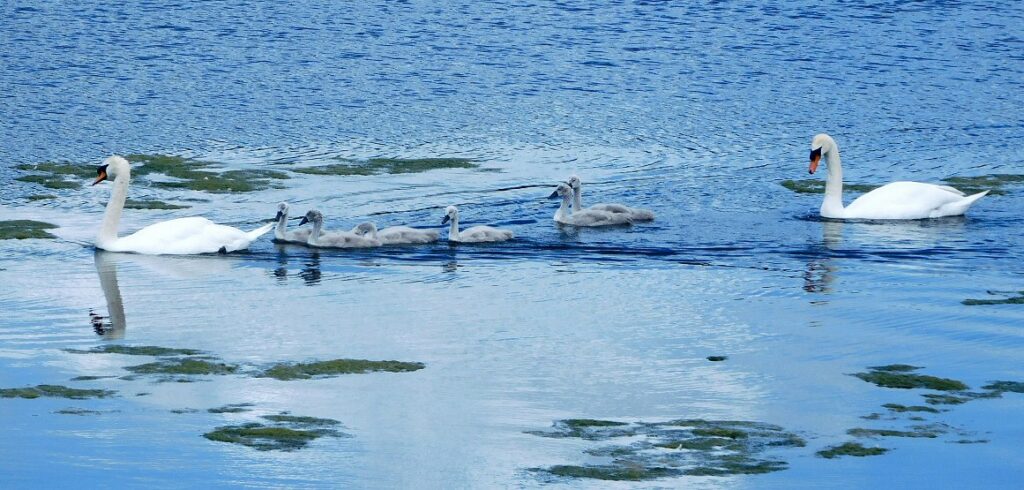
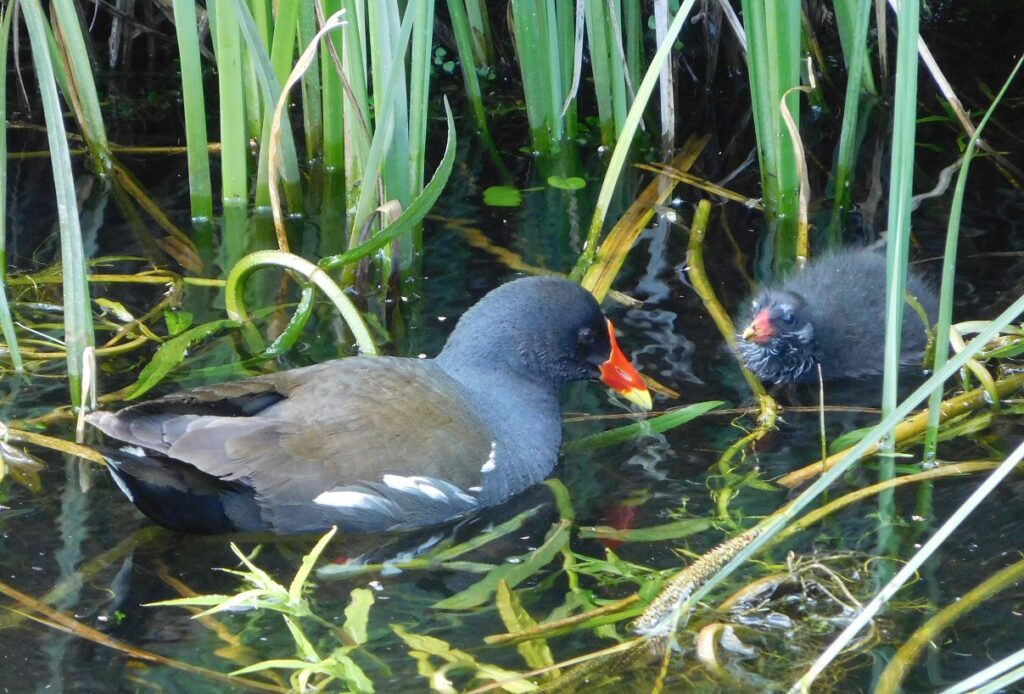
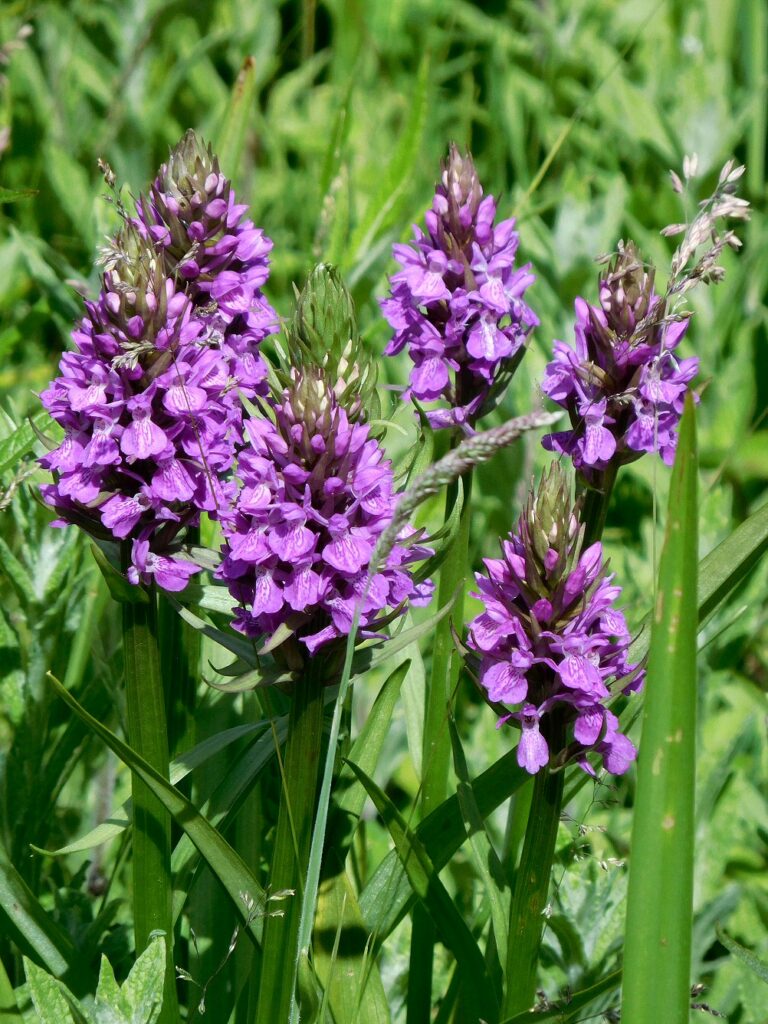

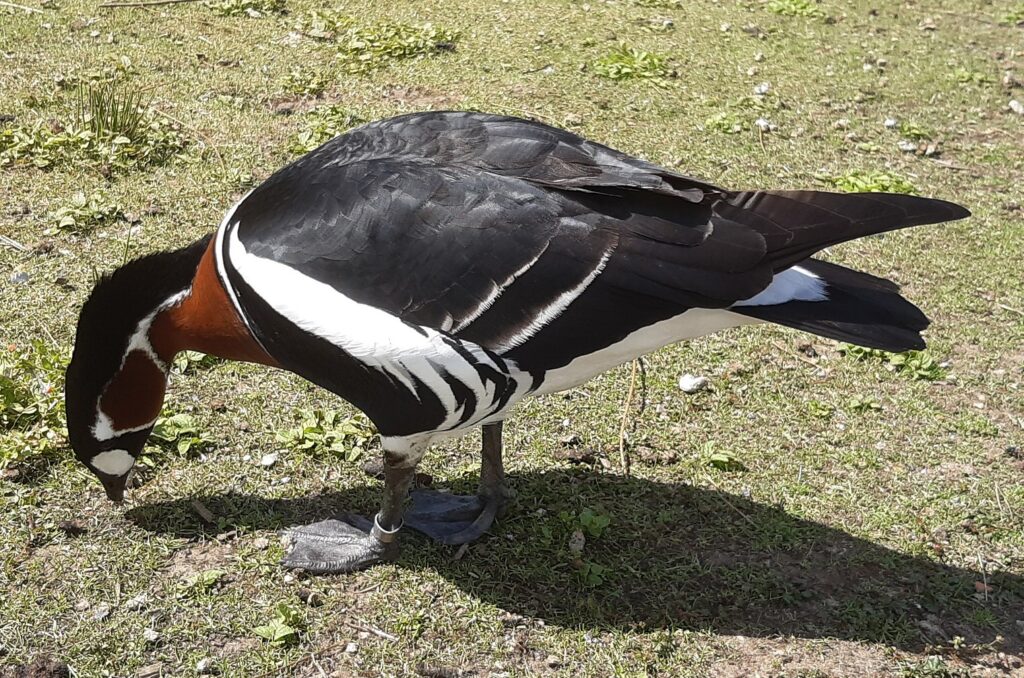
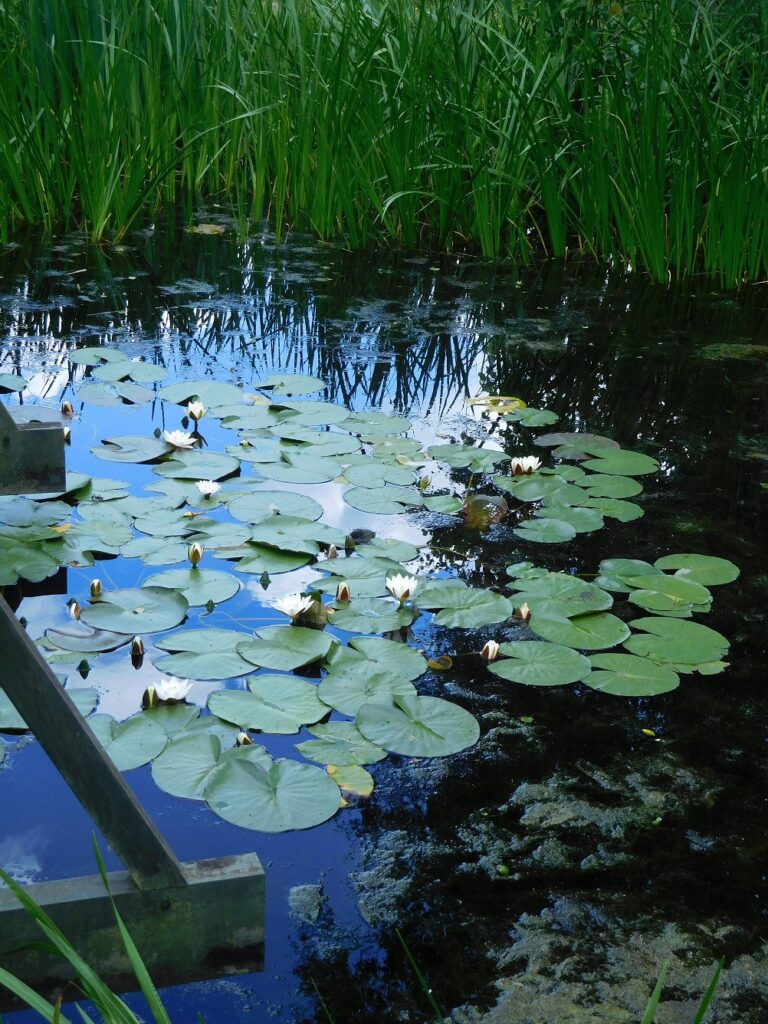






Well, where can you see swamps, meadows, wild flowers, scrub, woodland, lakes, riverside, rough grassland, and even a Victorian monument, all in an hour’s walk, and in easy reach of London? Wraysbury is the answer.
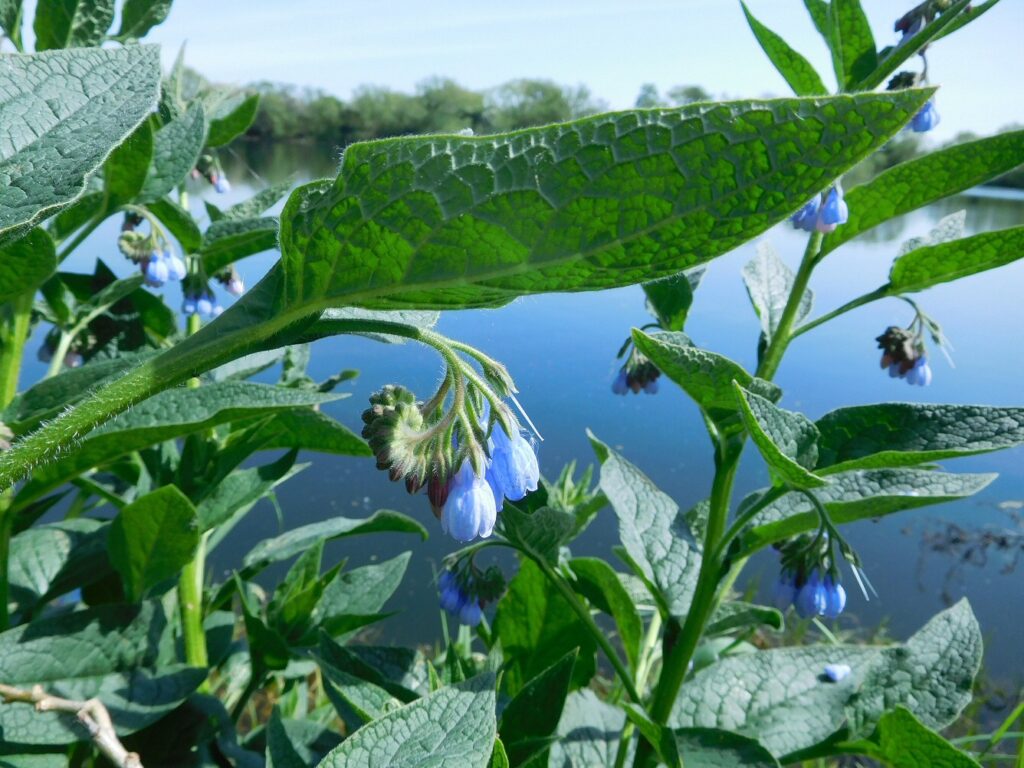
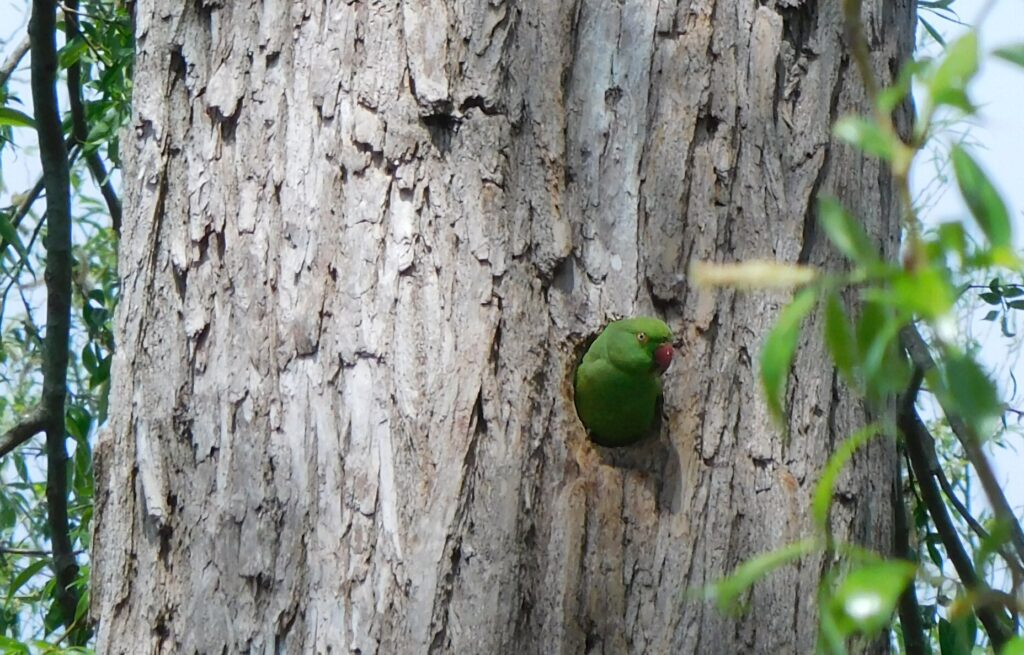
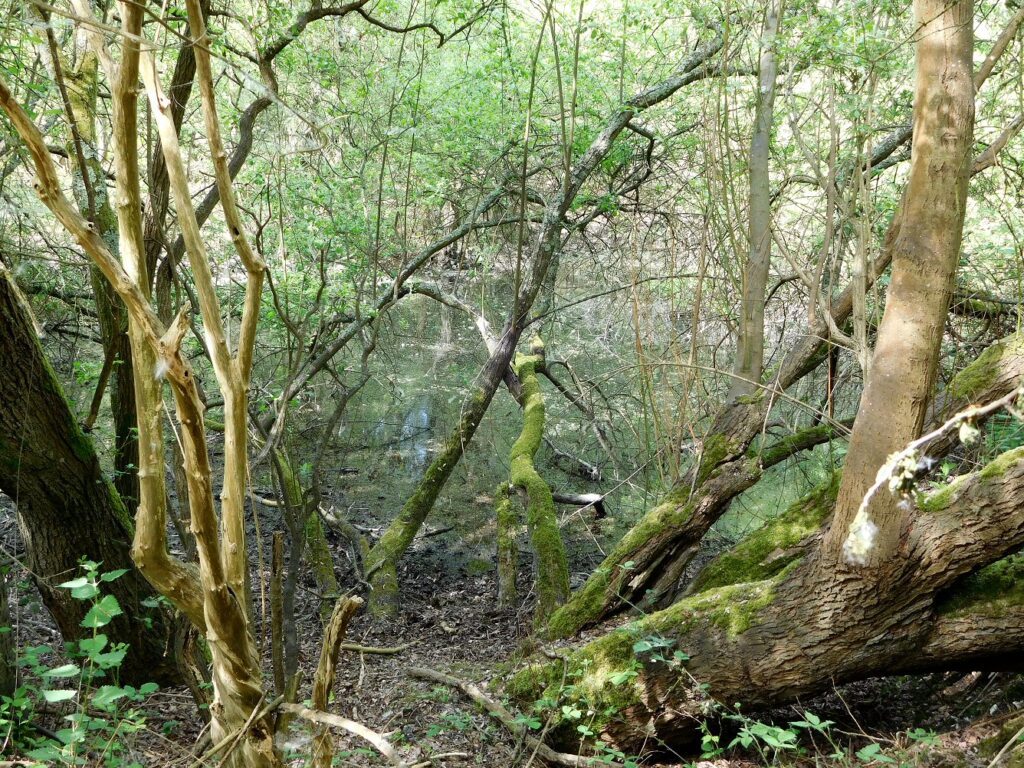
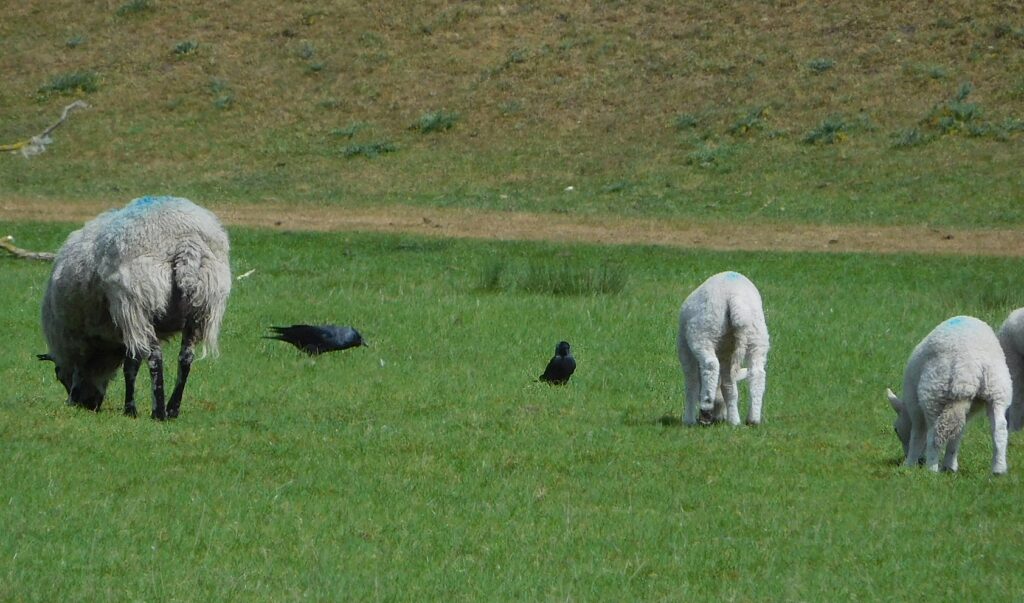
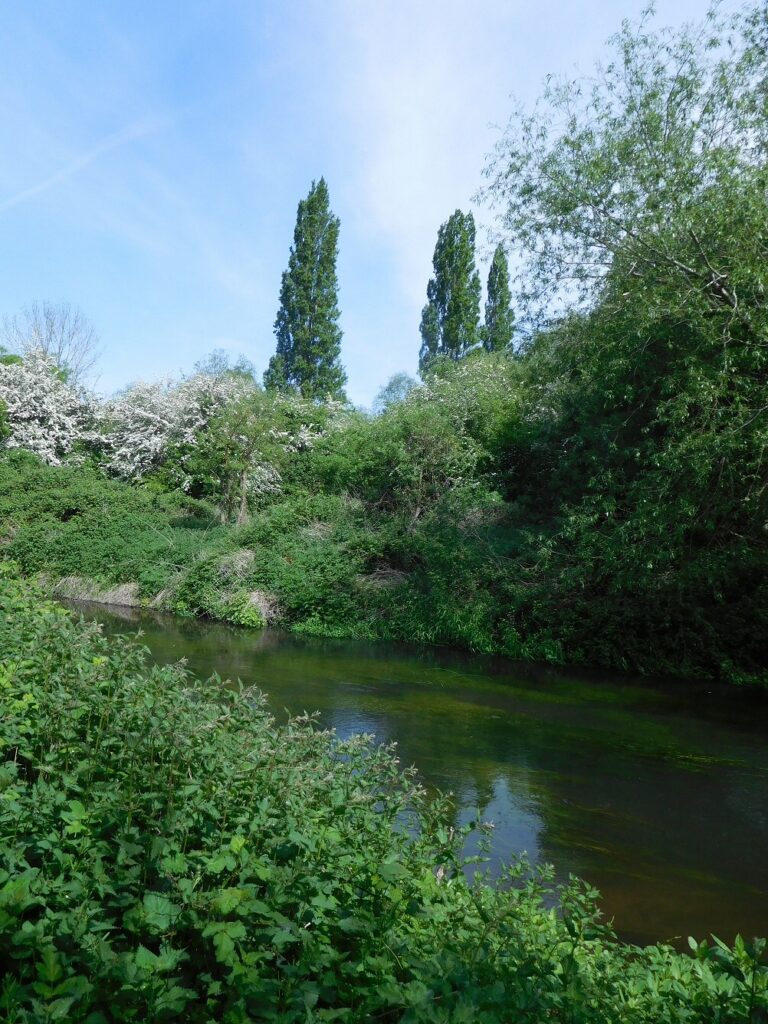
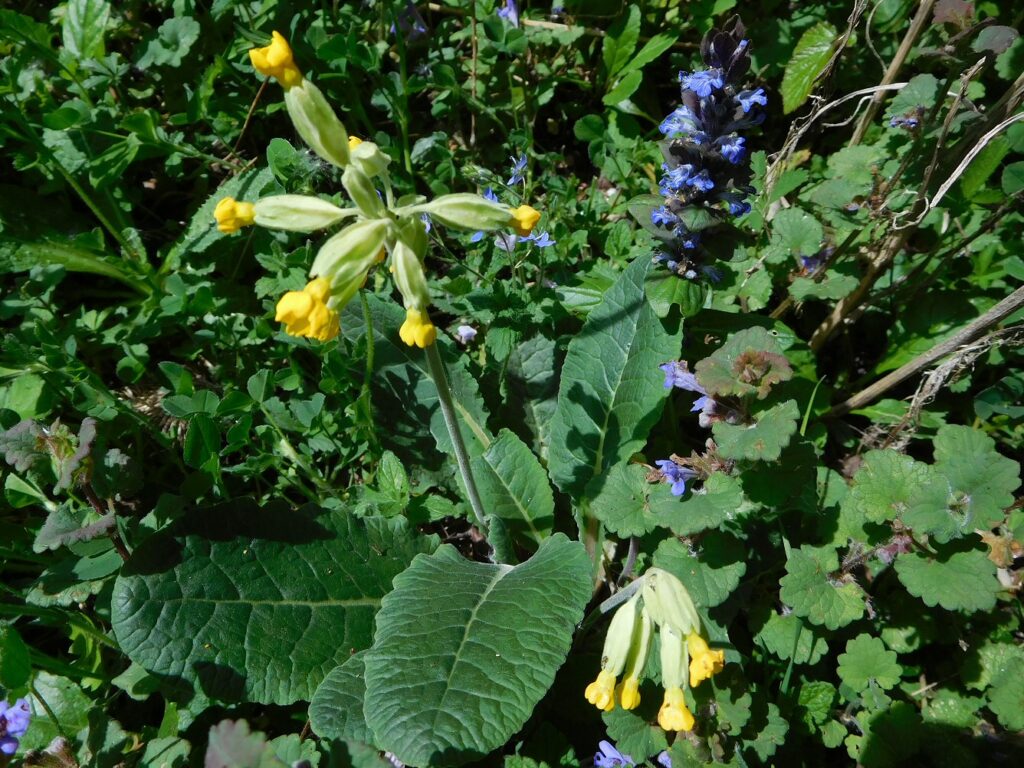
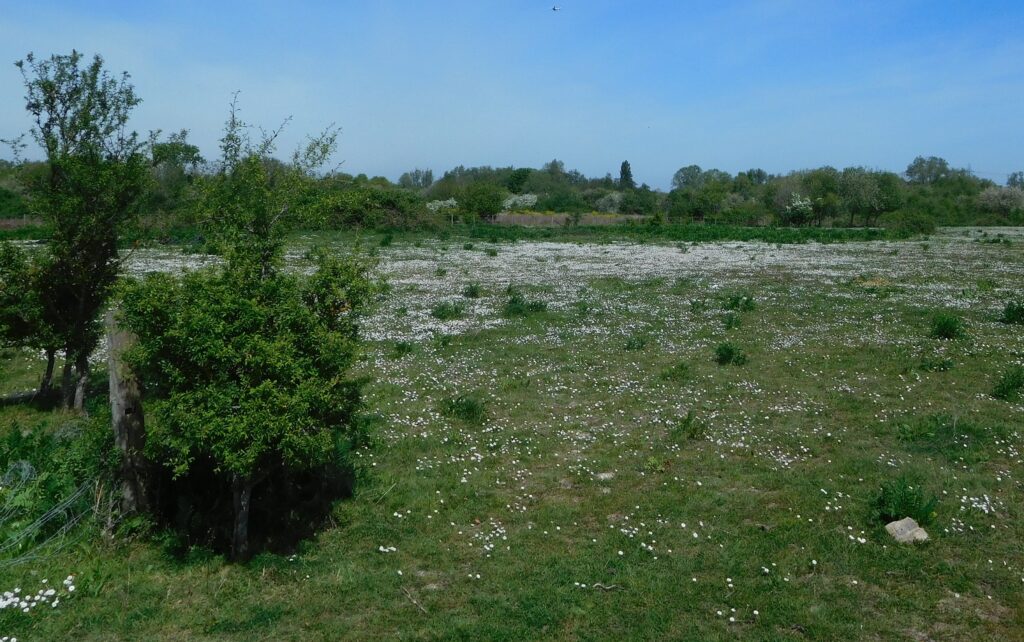
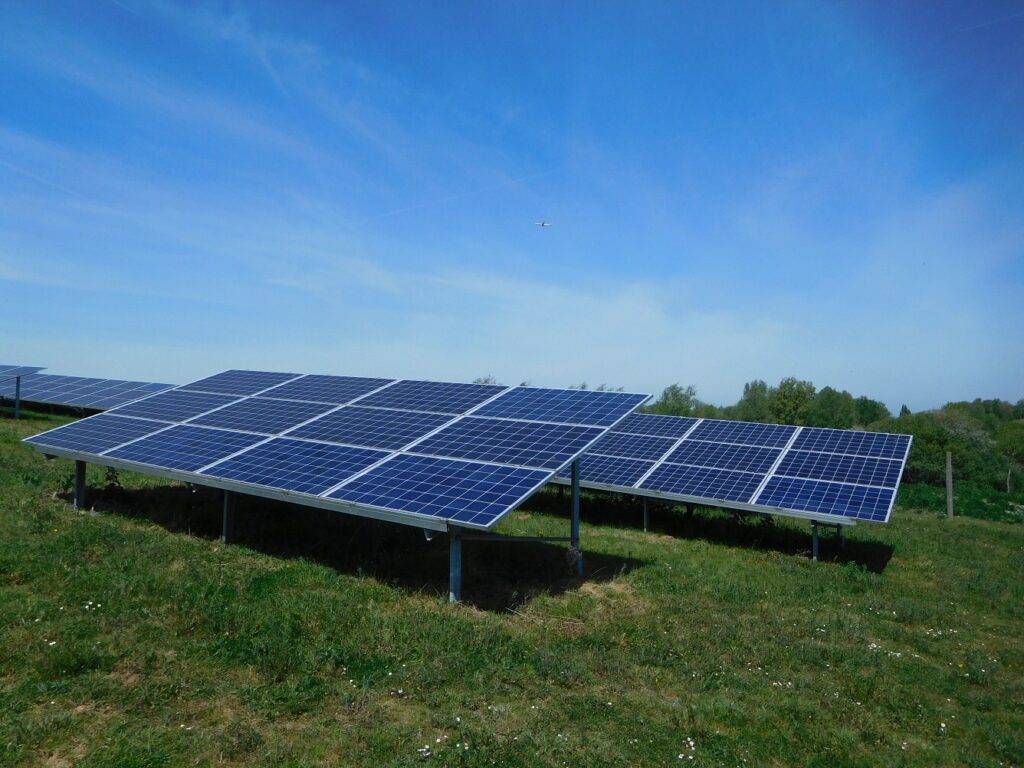
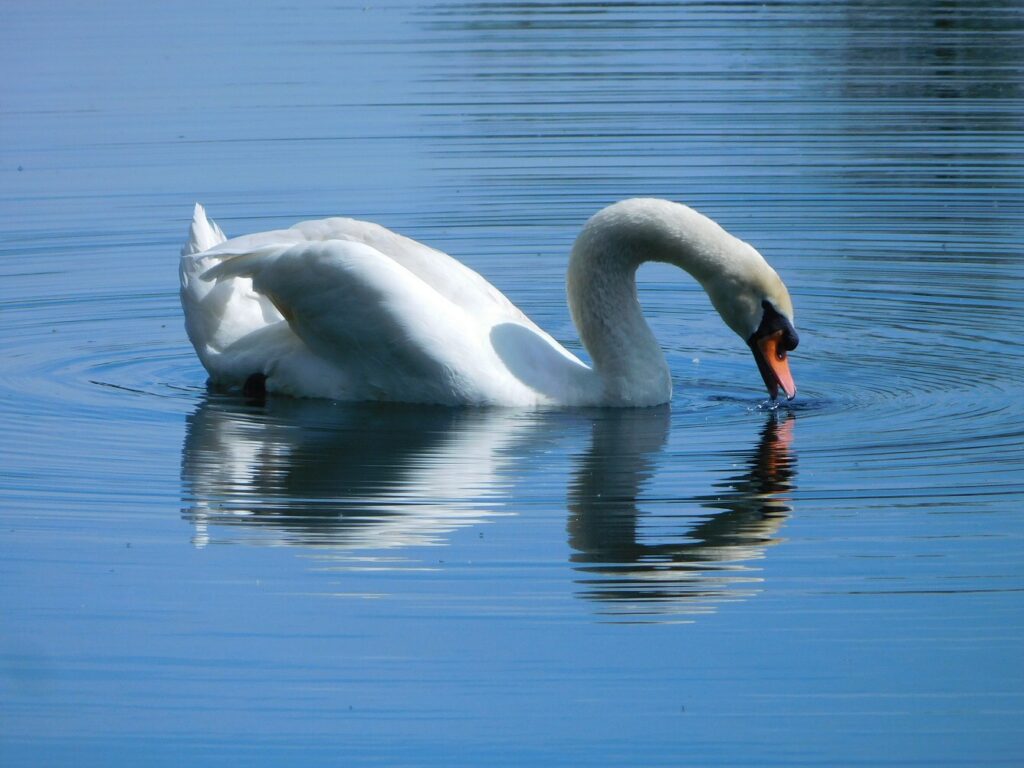
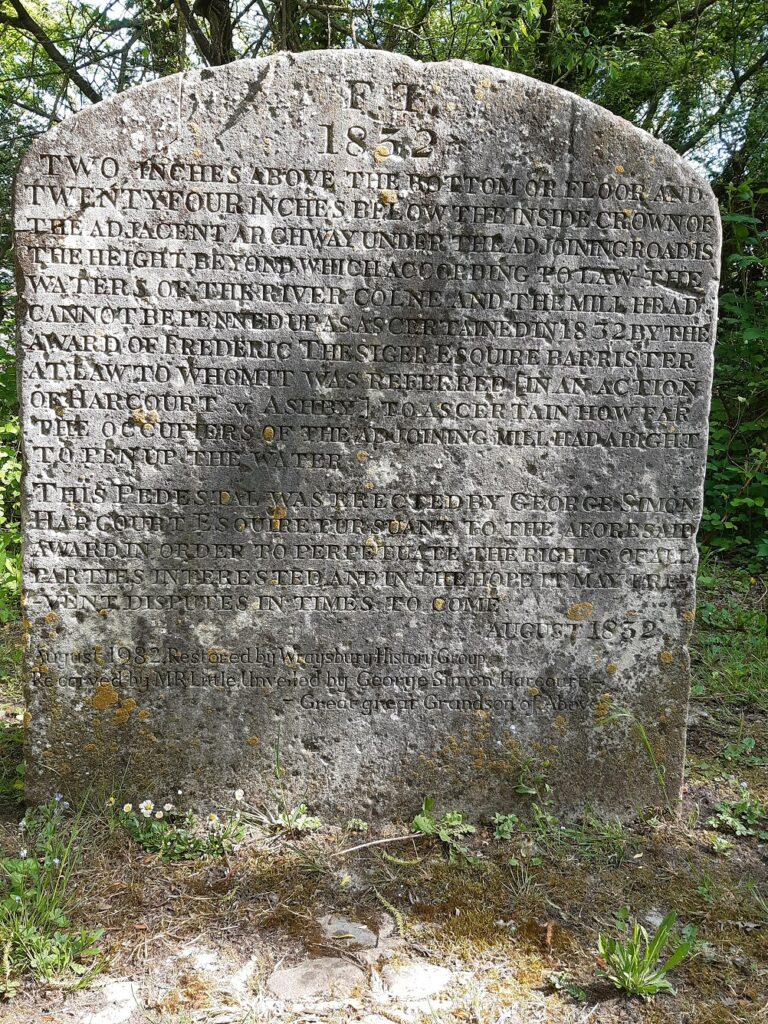
I don’t know if I’d set this in stone, but I heard 5 warblers singing, and caught a typical glimpse of a Cetti’s warbler diving from a bush beside the lake – big, dark brown, it really wasn’t any other bird. Still, I didn’t hear it call, which would have decided the matter beyond reasonable doubt. So, a 5-and-a-half warbler walk, I guess.
Butterflies: Large white, Small white, Brimstone, Holly blue, Peacock, Speckled Wood.
Odonata: Banded Demoiselle, Common blue (teneral, i.e. just emerged).
Other insects: Mayfly, Alder fly.
On the way home, I went round Heathrow airport, and a Skylark sang to me through the open car window from the grassy areas beside the runways.
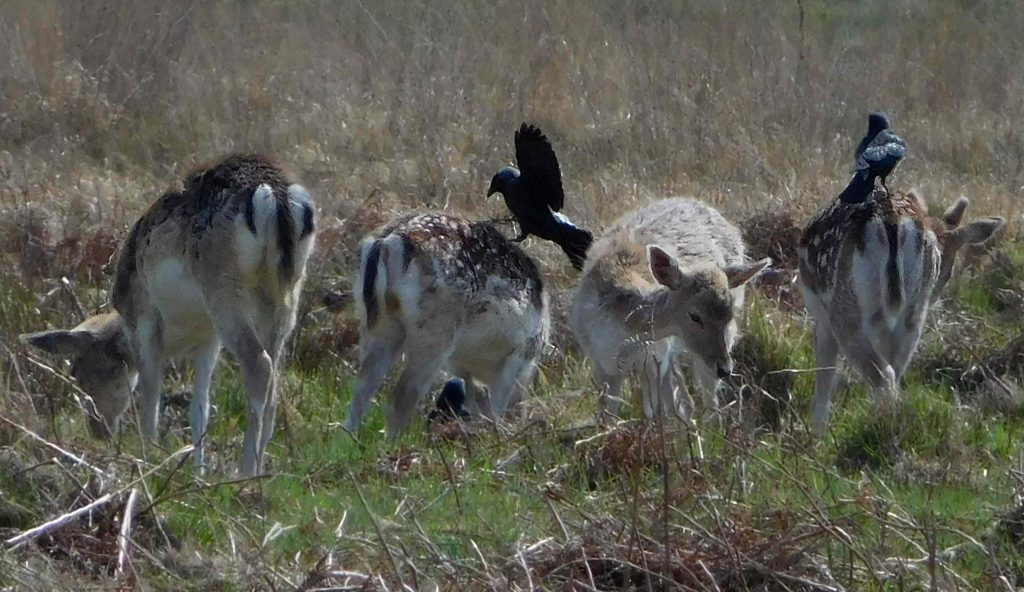
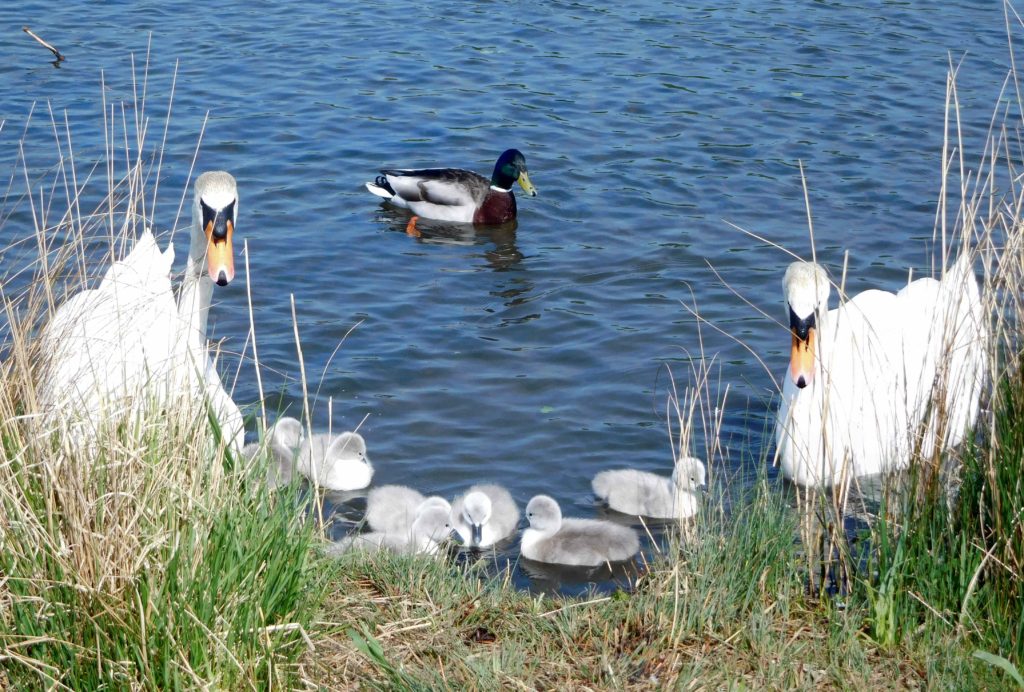
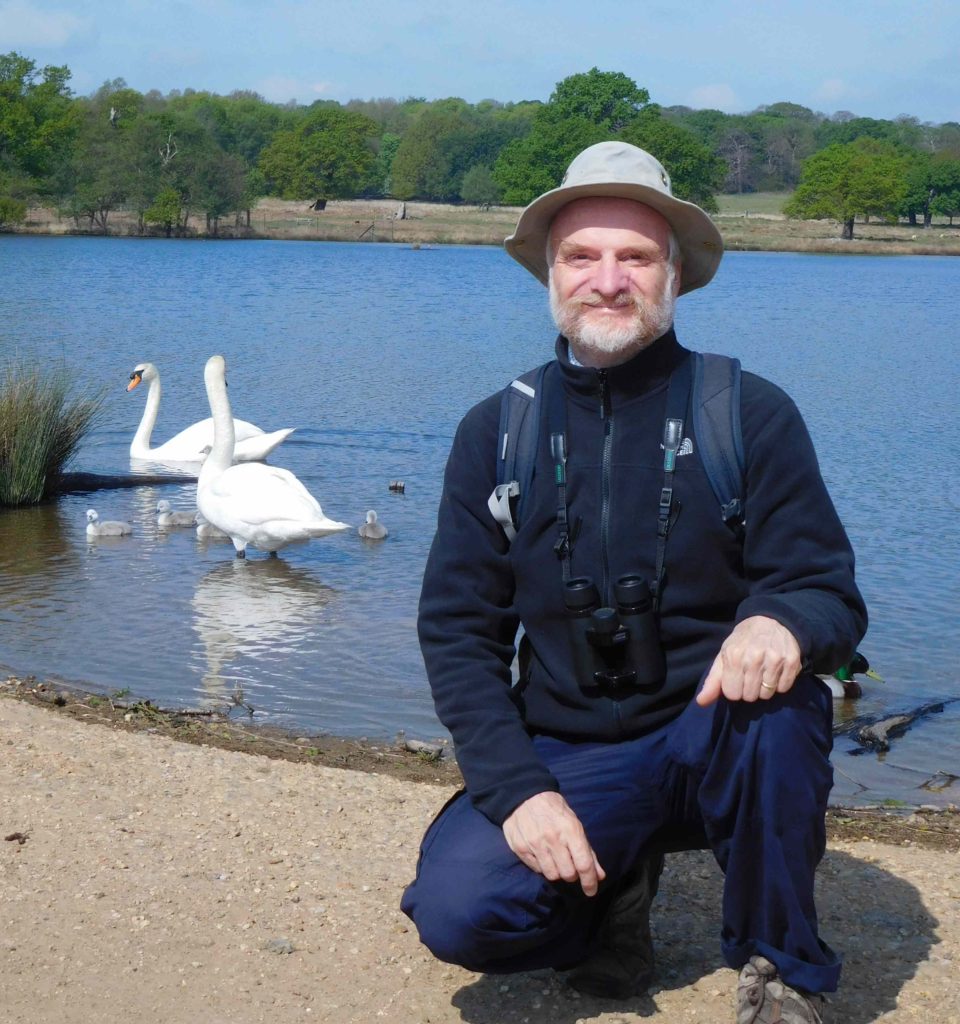
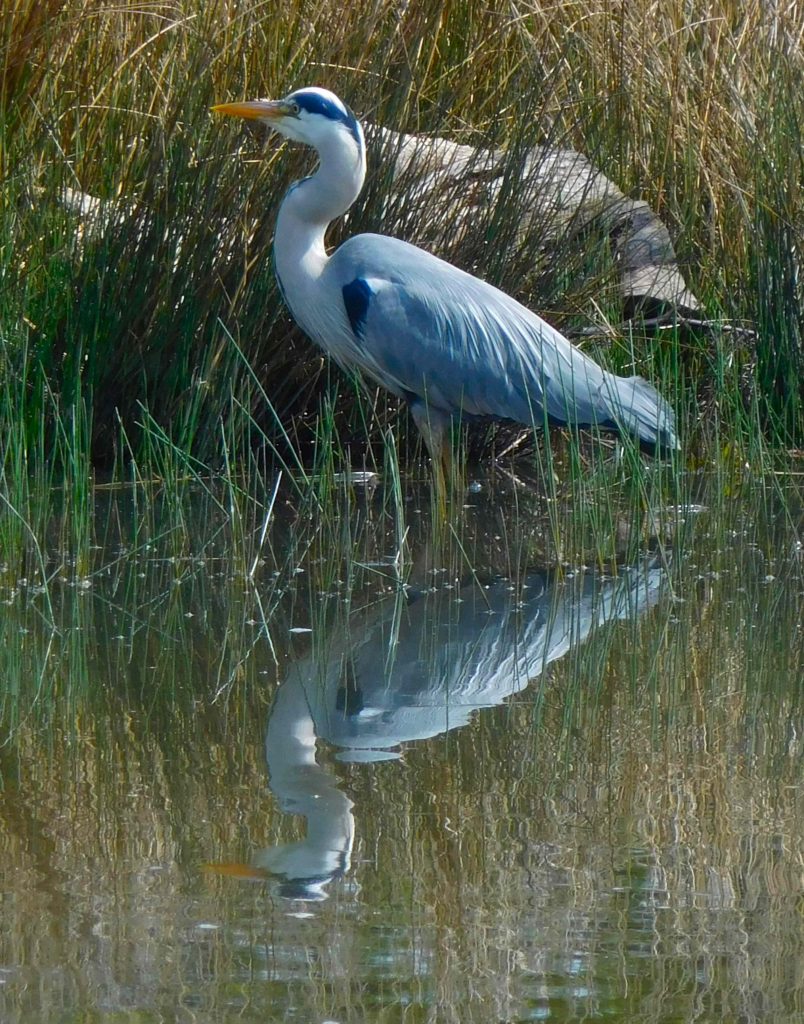
Indian Summer days are delightful, but often not terribly rich in visible wildlife – this year’s young have fledged and left the nest; flowers have faded and gone into fruit (which can be beautiful, of course); butterflies and dragonflies have mostly stopped flying; summer birds have left for Africa; and the warm calm air doesn’t bring winter migrants from the frozen North.
But there was plenty to listen to this morning.
As I walked in off the road, a Heron took off behind the bushes, and gave a two-tone ‘cronk’ note as it flapped off over the lake. I peered through a gap, and there it was, its amazingly broad angled wings like an ingeniously light balsa wood and doped muslin flying machine, totally unlike the awkward folded umbrella of an ungainly bird that a Heron is when perched.
Two Mute Swans took off and flew low over the water right in front of me, as silent as their name: only their wings whistling with each heavy wingbeat.
A solitary Cormorant took off from the water, very black without the white breeding season thigh patches, also silent except for the heavy thwack of its feet slapping the water on the first ten wingbeats.
A Cetti’s Warbler, invisible in the waterside bushes as always, burst into its loud rude song. (Once you’ve read Barnes’s description of just how rude that is, in How to Be a Bad Birdwatcher, you’ll never hear a Cetti’s without smiling again, I promise.)
A Green Woodpecker gave its cheerful triple signature call, somewhere far out of sight. No need to look.
A few Long-Tailed Tits called anxiously to each other, ‘Tsirrup’, high in the willows. I couldn’t see them either, and again, I didn’t mind a bit.
Bizarrely (and this was a sight to behold, perhaps the only one of the walk), 4 Cormorants took to the air, seeming to be chasing 4 young Herons, presumably a family party.
Up on the horses’ hill, a Kestrel hovered silently on whirring wings.
The horses won’t be there much longer: Affinity Water have put up little notices To Whom It May Concern, saying they’ve had enough with ‘flygrazing’ (makes a change from flytipping, presumably) and will remove the horses if they’re not taken away. I suppose the gypsies have left them to breed as well as graze for free (there’s plenty of grass); the horses are always gentle, and do a good job of controlling the meadow, actually. Why would they do that, a friend wondered. I suggested that it made perfect sense – each year, the ‘owners’ could drop in, take a mare, and leave the others to keep up the supply of new horses. What an economical, ecological system. Without the horses, I guess someone will have to pay for mowing, or maybe they’ll hire a flock of sheep for a few weeks each year? Not sure the horses aren’t a better solution. Of course they could leave some goats to go feral. (Only kidding.)